
Naunton Wayne, was a Welsh character actor, born in Pontypridd, Glamorgan, Wales. He was educated at Clifton College. His name was changed by deed poll in 1933.
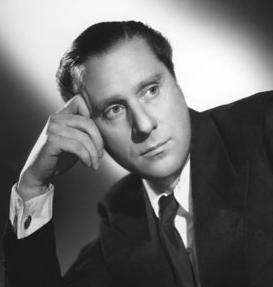
Sir Carol Reed was an English film director and producer, best known for Odd Man Out (1947), The Fallen Idol (1948), The Third Man (1949), and Oliver! (1968), for which he was awarded the Academy Award for Best Director.

Margaret Mary Day Lockwood, CBE, was a British actress. One of Britain's most popular film stars of the 1930s and 1940s, her film appearances included The Lady Vanishes (1938), Night Train to Munich (1940), The Man in Grey (1943), and The Wicked Lady (1945). She was nominated for the BAFTA Award for Best British Actress for the 1955 film Cast a Dark Shadow. She also starred in the television series Justice (1971–74).
Sidney Gilliat was an English film director, producer and writer.
Frank Launder was a British writer, film director and producer, who made more than 40 films, many of them in collaboration with Sidney Gilliat.

Arthur Basil Radford was an English character actor who featured in many British films of the 1930s and 1940s.

British Lion Films is a film production and distribution company active under several forms since 1919. Originally known as British Lion Film Corporation Ltd, it entered receivership on 1 June 1954. From 29 January 1955 to 1976, the company was known as British Lion Films Ltd, and was a pure distribution company.

The Lady Vanishes is a 1938 British mystery thriller film directed by Alfred Hitchcock, starring Margaret Lockwood and Michael Redgrave. Written by Sidney Gilliat and Frank Launder, based on the 1936 novel The Wheel Spins by Ethel Lina White, the film is about an English tourist travelling by train in continental Europe who discovers that her elderly travelling companion seems to have disappeared from the train. After her fellow passengers deny ever having seen the elderly lady, the young woman is helped by a young musicologist, the two proceeding to search the train for clues to the old lady's disappearance.

The Lady Vanishes is a 1979 British mystery comedy film directed by Anthony Page and written by George Axelrod, based on the screenplay of 1938's The Lady Vanishes by Sidney Gilliat and Frank Launder, in turn based on Ethel Lina White's 1936 novel The Wheel Spins. The film stars Elliott Gould, Cybill Shepherd, Angela Lansbury, Herbert Lom, and Arthur Lowe and Ian Carmichael.
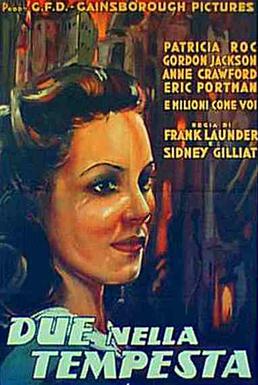
Millions Like Us is a 1943 British propaganda film, showing life in a wartime aircraft factory in documentary detail. It stars Patricia Roc, Gordon Jackson, Anne Crawford, Basil Radford, Naunton Wayne, Moore Marriott and Eric Portman.

Charters and Caldicott started out as two supporting characters in the 1938 Alfred Hitchcock film The Lady Vanishes. The pair of cricket-obsessed characters were played by Naunton Wayne and Basil Radford. The characters were created by Frank Launder and Sidney Gilliat. The duo became very popular and were used as recurring characters in subsequent films and in BBC Radio productions. Charters and Caldicott have also been played by other actors, and they eventually had their own BBC television series.
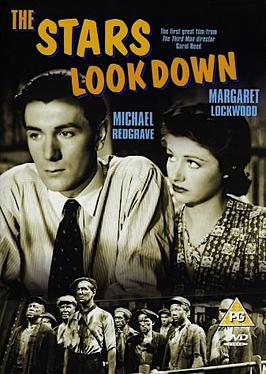
The Stars Look Down is a British film from 1940, based on A. J. Cronin's 1935 novel of the same title, about injustices in a mining town in North East England. The film, co-scripted by Cronin and directed by Carol Reed, stars Michael Redgrave as Davey Fenwick and Margaret Lockwood as Jenny Sunley. The film is a New York Times Critics' Pick and is listed in The New York Times Guide to the Best 1,000 Movies Ever Made.

Crook's Tour is a 1940 British comedy spy film directed by John Baxter featuring Charters and Caldicott. It is adapted from a BBC radio serial of the same name.

I See a Dark Stranger is a 1946 British World War II spy comedy film directed by Frank Launder and Sidney Gilliat and starred Deborah Kerr and Trevor Howard.
Edward Black was a British film producer, best known for being head of production at Gainsborough Studios in the late 1930s and early 1940s, during which time he oversaw production of the Gainsborough melodramas. He also produced such classic films as The Lady Vanishes (1938).
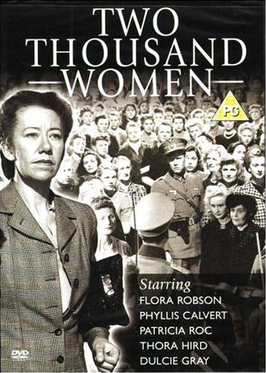
Two Thousand Women is a 1944 British comedy-drama war film about a German internment camp in Occupied France which holds British women who have been resident in the country. Three RAF aircrewmen, whose bomber has been shot down, enter the camp and are hidden by the women from the Germans.
Gordon Wong Wellesley was an Australian-born screenwriter and writer of Chinese descent. Born in Sydney in 1894 He wrote over thirty screenplays in the United States and Britain, often collaborating with the director Carol Reed. He began his career in Hollywood in the early 1930s and worked in Britain beginning about 1935. He was married to the scriptwriter Katherine Strueby. He was nominated for an Oscar for Best Writing, Original Story at the 1942 Oscars for Night Train to Munich, which was based on his novel, Report on a Fugitive.
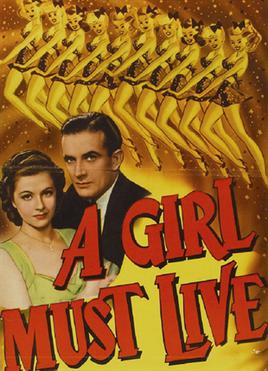
A Girl Must Live is a 1939 British romantic comedy film directed by Carol Reed that stars Margaret Lockwood, Renée Houston, Lilli Palmer, Hugh Sinclair, and Naunton Wayne. Based on a 1936 novel by Emery Bonett with the same title, the plot features three chorus line girls competing for the affection of a wealthy bachelor. It was one of a series of films Carol Reed made starring Margaret Lockwood.

State Secret is a 1950 British drama thriller film directed by Sidney Gilliat and starring Douglas Fairbanks Jr., Jack Hawkins, Glynis Johns, Olga Lowe and Herbert Lom. It was made at Isleworth Studios with Italian location shooting in Trento and the Dolomites. It was released in the United States under the title The Great Manhunt.

The Girl in the News is a 1940 British thriller film directed by Carol Reed and starring Margaret Lockwood, Barry K. Barnes and Emlyn Williams. It was based on the eponymous novel by Roy Vickers, released the same year.
















